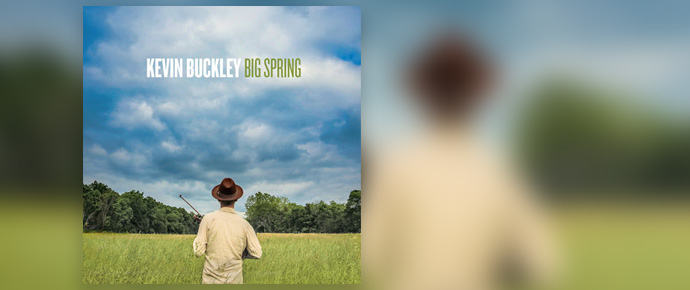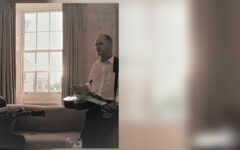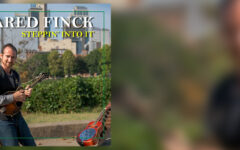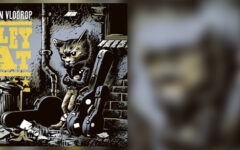
A Midwesterner who’s well adept at fiddle and old time music spawned from the Ozark Mountains in particular, Kevin Buckley shares a solo debut that reflects both his verve and versatility. He personally describes Big Spring as a celebration of fiddle, folk, and acoustic music, and, in fact, it lives up to its branding. So too, while an infusion of Celtic influences are also pervasive throughout, they don’t detract from his kinship to the basics of bluegrass as well. If anything, they open up new avenues for the music by allowing the melodies to remain of prime importance throughout.
Although Big Spring marks his first album that’s entirely his own, Buckley’s no stranger to making music. He was first drawn to fiddle at the age of nine, and his ongoing interest in the instrument found him exploring several vintage styles that are all inherent to the American heartland. Never content to limit himself to any single genre, he founded an outfit called Grace Basement, a band which eventually released four albums of their own, all of which find Buckley at the helm as the chief instigator, instrumentalist, and songwriter.
In contrast, Big Spring is a decidedly stripped down affair, one that finds Buckley primarily performing solo on fiddle and guitar, with only occasional accompaniment from Gerard Erker on banjo, Eileen Gannan on harp, Jon Ferber on guitar, Alan Murray on bouzouki, and Jan Walsh and Elmer Arkins adding additional fiddles. That Irish influence is particularly pervasive on the first two tracks, Sweeney’s Reel and Ryder’s Block, both of which would find a fine fit with a British folk-rock combo like Fairport Convention or any of the others of their ilk. Rousing and rambunctious, they’re the type of tunes that might easily rally the musical masses and animate an audience.
So too, the jaunty Hardiman the Fiddler, The Belles of St. Louis, City of Savannah, and The Queen (of the Rushes) and the Cook (in the Kitchen) allow for further enticement as spun from a traditional tapestry. Likewise, both La Rubia (An Chuilfhionn) and Marcelle et Marcel boast the old world imagery as reflected in the titles.
While most of the album’s entries are confined to instrumentals, Buckley also serves up some exceptional songs. The classic The Blackest Crow is especially earnest and heartfelt, further enhanced by shared harmonies from Alex Sinclair and Dan Lowery. Never Tire of the Road follows suit, an homage to the life of a tireless troubadour and his endless fascination with whatever awaits over the next horizon.
The remainder of the album follows suit, its charms undiminished with each successive entry. The music may be spare, but it’s still animated, eclectic and upbeat by any measure. Highly recommended for anyone with an interest in music’s archival origins, or for those that simply claim a fascination with fiddle.







